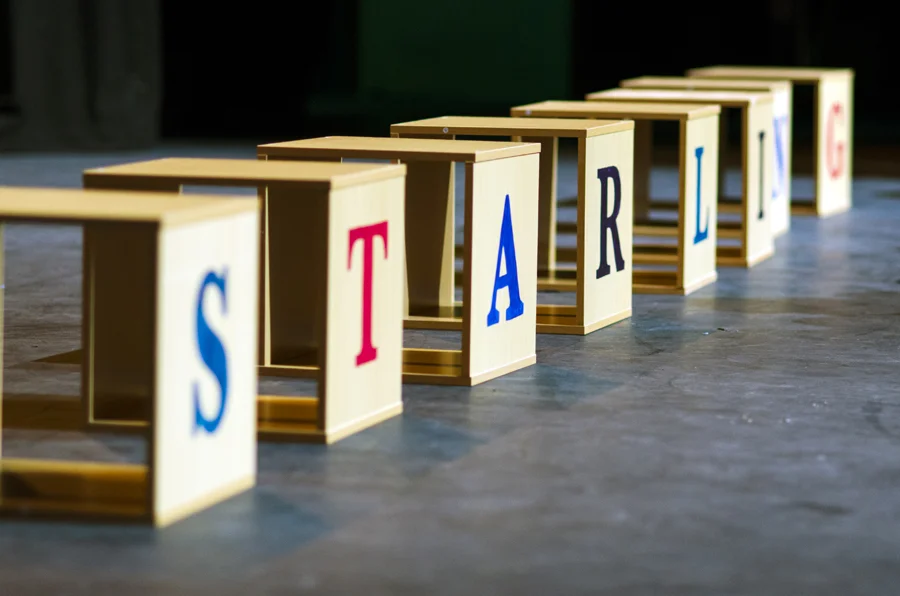Everything I know, I learned from a Musical
/No matter how you feel about the musical Annie, that show educates - The Great Depression, FDR's paralysis, 1920s fashion, Art Deco, not to mention a big dose of good morals and sparkling optimism! It’s fair to say Annie taught me a lot when I first saw it aged 8.
Similarly, Fiddler on the Roof enlightened me to Tsarist Russia, The Sound of Music to Nazism and rudimentary music theory, Mary Poppins to women's suffrage and Miss Saigon to the Vietnam War. It doesn’t matter if it was just a sprinkling of an education, it was enough to get me interested in those things.
As I mentioned in my recent blog post 'Musicals Matter More', musical theatre goes beyond light-hearted, pithy entertainment; we have in our hands a powerful, educational tool that is all too often dismissed.
When I was 6, I performed in my first musical, Mary Whiddon. Written by my Grandmother, the show was based on the true events of a young girl killed by a jealous lover on her wedding day in 1641. The background of the imminent English Civil War was a valuable history lesson in itself, but the life lessons that production instilled in me were even more valuable: confidence, creativity, expression, presentation skills… the list goes on, and my continued engagement with the arts undoubtedly built on this.
Michael Attenborough. Source: www.thestage.co.uk
This case was argued in a brilliant letter to The Stage on May 2nd by Michael Attenborough, outgoing Artistic Director of London's Almeida Theatre. Highlighting that “many factors shape our personalities; one of the strongest [being] education”, Attenborough made a clear and valid statement to our society that marrying the arts with education “is not some airy-fairy, nebulous, esoteric issue. The beneficial effects of participation in the arts - particularly on young people - are tangible, visible and evident”. Our government is keen that we make an economic case for the arts, which has been done time and again, but the visceral and educational case for the arts is being overlooked and, as the impact of arts cuts widens, we could be left with a destructive and hollow society, rather than a supportive, solid one.
However, it's not just the government who need to acknowledge these benefits, it's the public. Writer Jake Orr pointed to this in his blog last week, saying that “We have to make the public see the necessity in the arts, and show what will happen without it”, and this shift will only come, initially at least, from a grassroots level, just as it did with me on stage in Mary Whiddon, and indeed off stage watching Annie.
As Starling Arts develops and expands its Schools and Education work, this argument is at the forefront of what we do. We don't work with young people or adults solely to create the next West End star, but to nurture a society of individuals who are confident, hopeful, engaging, creative, and who understand themselves and others. Knowledge isn't just about facts, it's about value, good judgement, appreciation and how we apply these things to the world around us. My involvement with musical theatre and the arts - from performer to audience member, writer to educator - established this in me from a young age, and it is something Starling Arts will always advocate if it goes some way towards helping the world we live in. Attenborough hit the nail on the head with this statement in his letter:
“Those of us who work in the arts are frequently and insultingly referred to as ‘luvvies’, as rarefied, lucky and self-indulgent; and our work as marginal, a mere luxury if it can be afforded. But the umbilical cord that runs from education, through the arts, to people, is not marginal. It has a profound effect on us, on how we behave and therefore on what kind of society we create.”
Look behind the song and dance, and we've an essential tool for a better society.
What did musicals teach you?



